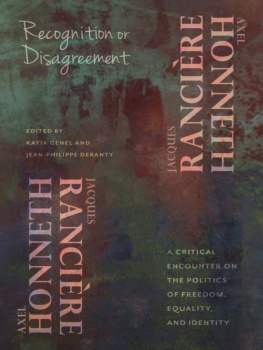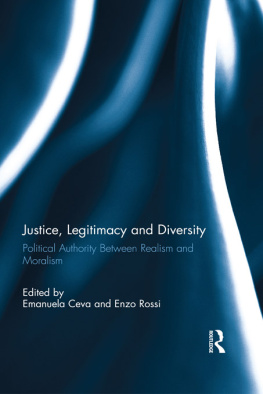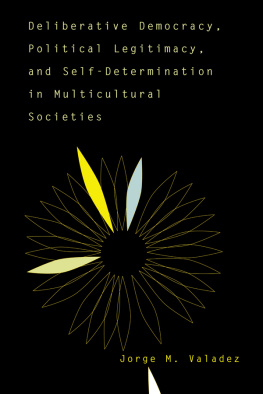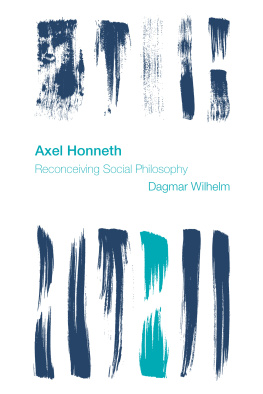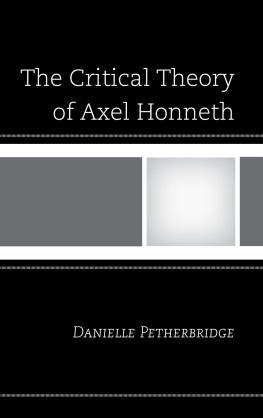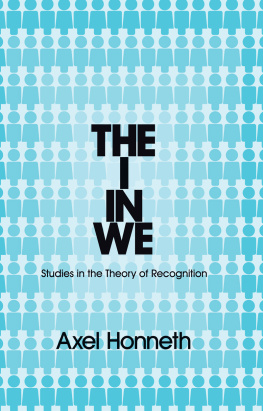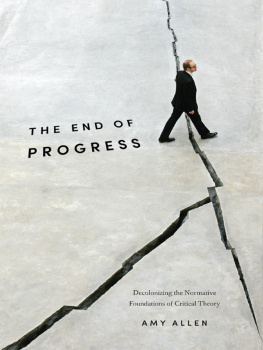
Table of Contents
First published as Das Recht der Freiheit Suhrkamp Verlag Berlin 2011
This English edition Polity Press, 2014
The translation of this work was funded by Geisteswissenschaften International Translation Funding for Humanities and Social Sciences from Germany, a joint initiative of the Fritz Thyssen Foundation, the German Federal Foreign Office, the collecting society VG WORT and the Brsenverein des Deutschen Buchhandels (German Publishers & Booksellers Association).
Polity Press
65 Bridge Street
Cambridge CB2 1UR, UK
All rights reserved. Except for the quotation of short passages for the purpose of criticism and review, no part of this publication may be reproduced, stored in a retrieval system, or transmitted, in any form or by any means, electronic, mechanical, photocopying, recording or otherwise, without the prior permission of the publisher.
ISBN-13: 978-0-7456-6942-7 (hardback)
ISBN-13: 978-0-7456-6943-4 (paperback)
ISBN-13: 978-0-7456-8006-4 (epub)
ISBN-13: 978-0-7456-8005-7 (mobi)
A catalogue record for this book is available from the British Library.
The publisher has used its best endeavours to ensure that the URLs for external websites referred to in this book are correct and active at the time of going to press. However, the publisher has no responsibility for the websites and can make no guarantee that a site will remain live or that the content is or will remain appropriate.
Every effort has been made to trace all copyright holders, but if any have been inadvertently overlooked the publisher will be pleased to include any necessary credits in any subsequent reprint or edition.
For further information on Polity, visit our website: www.politybooks.com
Preface
It has taken me nearly five years to complete this book. And at the end of each day of work on it, I saw a need to include many more arguments and empirical evidence in the future. This feeling of not being finished despite all the effort I have put into this work has not yet left me, without me knowing what I could do to be rid of it. This feeling of having come up short is likely due to the ambitious goal I had set for myself when I first undertook work on the book. I sought to follow the model of Hegel's Philosophy of Right and develop the principles of social justice by means of an analysis of society. As I had realized a few years prior while studying Hegel's famous text, this project could only succeed if the constitutive spheres of our society are understood as institutional embodiments of particular values whose immanent claim to realization indicates the principles of justice at work in each specific social sphere. Of course, this procedure demands that we first get a clear sense of the values that are to be embodied within the various spheres of our social life.
For this reason, the introduction to this book, which also follows the model laid down by Hegel, demonstrates that in modern liberal democratic societies these values have been fused into the single value of individual freedom in its various familiar meanings. The initial premise of my study is that each constitutive sphere in our society institutionally embodies a particular aspect of our experience of individual freedom. The modern idea of justice is thus divided into as many aspects as there are institutionalized spheres of the promise of freedom. In each of these systems of action, just treatment takes on a different meaning, because the realization of freedom requires specific social preconditions and mutual consideration. On the basis of this fundamental notion, the central and most comprehensive part of the analysis will consist in what I call a normative reconstruction, which will allow us to examine, by following the historical development of each of these social spheres, the degree to which the understanding of freedom institutionalized within them has already been socially attained.
It is at this point in my investigation, where I begin with the attempt at a normative reconstruction, that the difficulties begin and the inevitable feeling of incompleteness takes over. I have underestimated the fact that Hegel stood at the very beginning of the formation of sophisticated modern societies, which allowed him to determine the principles of legitimacy underlying individual social spheres without concern for future developments and by resorting to a few individual scientific disciplines. By contrast, I find myself in the middle of a two-hundred-year long process of conflictual and non-linear realization of these principles a process that I have had to reconstruct normatively in order to be able to assess the opportunities, dangers and pathologies of the freedoms within each of these spheres. Although this more sociological approach allows more flexibility with regard to the historical material than would a strict historical account, I am still faced with the task of having to present enough findings and evidence from various fields of knowledge to convince less normatively minded readers that the direction of development I have proposed and the resulting conclusions are in fact plausible. In hindsight, much is still to be done in this regard, as we would have to take into account how all presumed paths of development have unfolded in various different nations, while also going into much greater detail when it comes to diagnosing the present.
Nevertheless, I hope that the result of my study is clear: We will only be able to get a clear sense of the future requirements of social justice if we recall, by addressing the struggles that have been fought on the normative foundation of modernity, the claims that have not yet been redeemed in the historical process filled with social demands for the realization of institutional promises of freedom.
I would never have been able to write this book without the help of a number of people and without the generous support of various institutions. Because German universities allow professors little time for research work, a familiar lament, I have had to rely on occasional emancipation from the normal semester routine. This began with a research semester funded by a generous grant by the Volkswagen foundation for a research project at the Institute for Social Research on Structural Transformation of Recognition in the 21st Century. I was then able to benefit from month-long visits to the Sorbonne, Paris I, and the cole Normale Suprieure in Paris; owing to the friendly and reserved atmosphere, I was able to make great progress in a relatively short period. Finally, I was able to finish my study due to a further sabbatical allowing me to engage in a university project entitled The Formation of Normative Orders organized by the Goethe University in Frankfurt. But, most of all, I have profited from the workshops in which l was able to present portions of my work over periods of several days to colleagues and students. A seminar organized by Christoph Menke and Juliane Rebentisch in the Institute of Philosophy at the University of Potsdam, as well as a master's course in Goslar organized by the Research Institute for Philosophy at the University of Hanover, were to prove especially fruitful. I have also benefited greatly from a colloquium at the University of Marburg in connection with my Christian-Wolff-Lecture. I owe a great deal of gratitude to everyone involved in the preparation and coordination of these visits and workshops. This is especially true for my colleagues, who supported me with critical objections, references and theoretical proposals. In this regard my thanks go to Titus Stahl above all, assistant at the Institute of philosophy at the Goethe University, Frankfurt, who over the course of two years put me under extremely instructive pressure with his analytical intelligence and perseverance, though I have not been able to implement all the differentiations he called for. I also profited from the support of many other individuals at various points in my work: Martin Dornes, Andreas Eckl, Lisa Herzog, Rahel Jaeggi, Christoph Menke, Fred Neuhouser and, in many conversations on literary sources, Barbara Determann and Gottfried Kler. I have been extremely fortunate to have had such a supportive atmosphere in writing this book: Frauke Khler did her best to decode my handwriting, keep order of the various parts of the text and put it all in the proper form. Stephan Altemeier was helpful when it came to finding important literature and also, together with Nora Sieverding, put together the index for the German edition. I am grateful to all three of them for their cooperation. I also thank Eva Gilmer for the many years of intensive and serendipitous cooperation; she is a kind of lector whom I thought only existed in the correspondences or autobiographies of older authors. She read the manuscript line for line, made many suggestions for improvements and pushed me to make the deadline. I would like to extend my gratitude to Joseph Ganahl, the translator of the English edition, who for many years, and with a great deal of care, skill and theoretical understanding, has translated my works into English. I can hardly imagine any other translator with the same friendliness and nonchalance, who nevertheless manages to put together texts in which I recognize the very same intention and tone as in my own original work. I would like to thank him again for the many years of fruitful and uncomplicated collaboration. There are finally not enough words to express the gratitude I owe to my wife, who spent many hours discussing with me and plunging into the manuscript it is to her that I dedicate this book.
Next page

